Today's Tidbit... The School Of Hard Knox
Players now transfer in and out of schools, especially when the cash is greener on the other side of the fence, and it seems like college football as we know it is disappearing. That might be, but if it is any comfort, the pay-for-play atmosphere existed long ago, with some teams earning reputations as playing loose with the law.
Consider the case of the 1902 Knox College football team. For those with the misfortune of living outside the Midwest, and even for some who live here, Knox is a private liberal arts school of 1,050 students in Galesburg, Illinois. Their most famous alum in today's football world is Todd Monken, the Baltimore Ravens defensive coordinator. Since they now play DIII football, they do not inspire awe in most.
But their 1902 team was different. That year, they drilled several small colleges and beat Northwestern 15-0, Kansas 5-0, and Notre Dame 12-5 while losing to Chicago 5-0 and Nebraska 7-0. However, casting a shadow over those achievements were claims that Knox operated on the unethical side of the tracks, playing fast and free with the eligibility rules.
Whatever liberties Knox took, they did not violate NCAA eligibility rules because the NCAA did not yet exist in 1902. Schools generally allowed players four years of eligibility, and some, like the Western Conference, now the Big Ten, required transfers to be on campus for one full year before playing intercollegiate football. Not everyone followed those rules, and teams generally negotiated player eligibility terms when contracting to play one another.
Nevertheless, Knox was accused of roster chicanery in several games in 1902. Knox’s coach was John R. McLean, who played football at Michigan from 1897 to 1899, earning a spot on Walter Camp's third-team All-American team as a halfback. He was also Michigan's track captain and was a silver medalist in the 110-meter hurdles at the 1900 Paris Olympiad. McLean was a fine athlete.
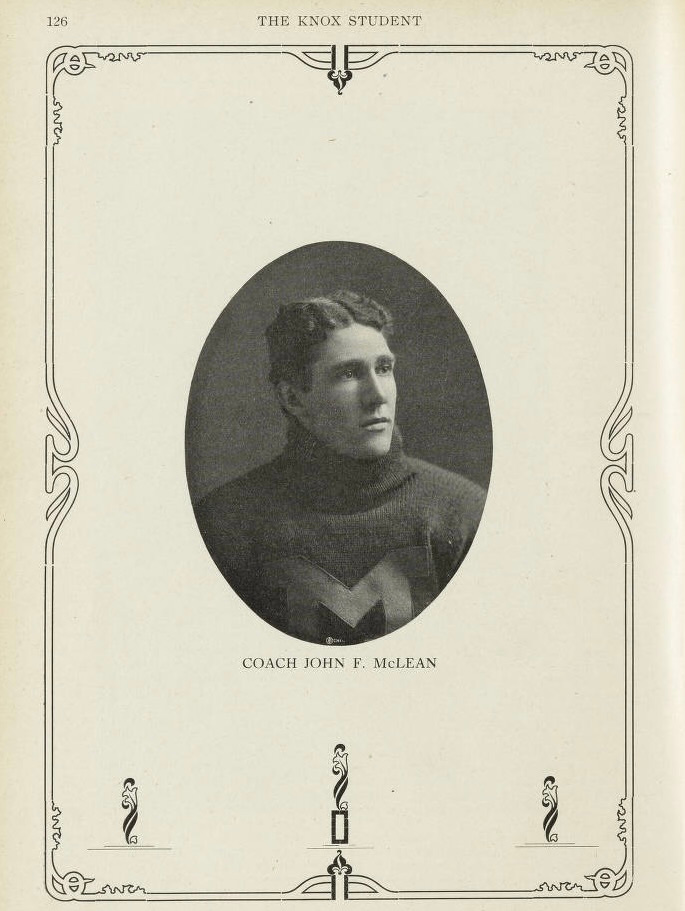
One of his football and track teammates at Michigan was Richard "R. R." France. He left Michigan in 1900 and enrolled at the Indianapolis College of Dentistry, where he studied for a year or two.
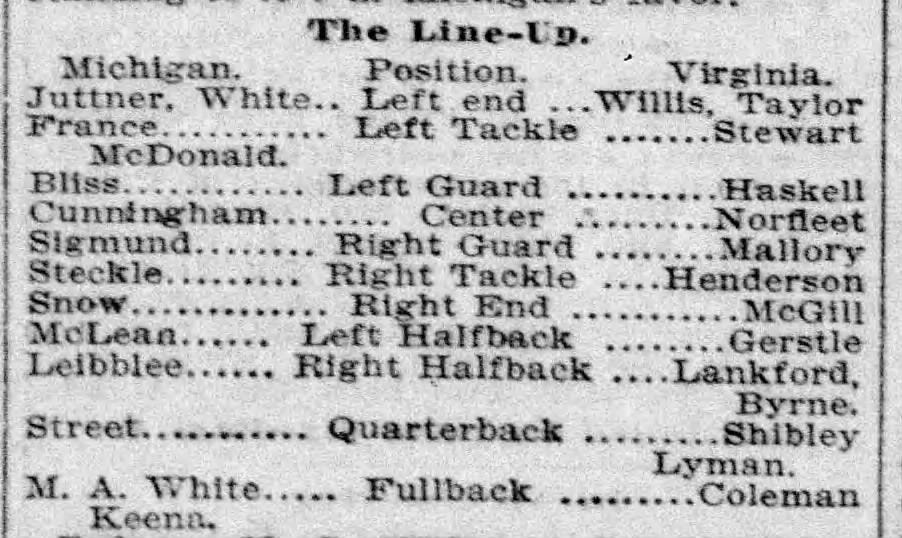
After Knox won several games against lesser opponents to start the 1904 season, France (sometimes spelled Franz) suddenly enrolled at Knox, taking over at left guard just before their big game with Chicago. The other guard was George Martin, who had played at Knox in 1898 and 1899, took a year off, and returned to play in 1901 and 1902. Both guards were sizable boys for the time, tipping the scales at 225 lbs.
In its coverage of Knox's 5-0 loss to Chicago, the Chicago Tribune story mentioned that the Knox guards were ineligible under Western Conference rules. France clearly violated the transfer rule, though it is unclear what the claim was about Martin. The other star of the Knox team was Henning Akerson, often spelled Ackerson, Atkinson, or another variation. He was playing his fourth year for Knox and captained the football team the year before. Weighing in at 180 lbs., Akerson was strong and fast, alternately playing end, tackle, or fullback.
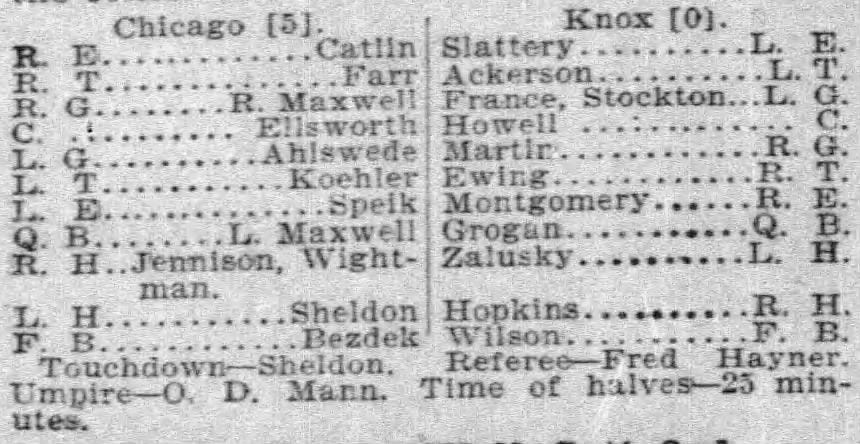
A few weeks later, Knox beat Northwestern in Chicago, with both sides accusing the other of foul play. During the first half, France put a Northwestern player out of the game by blasting him after the player signaled for a fair catch. France received his comeuppance when he was booted from the game for slugging early in the second half, though Northwestern's coach supposedly sent in a little-used substitute to start a fight with France, who the ref caught retaliating. The Chicago Tribune summarized the events, writing:
"As a rough-and-tumble match, where brutal tackles, active elbows and knees were a prominent factor, the game was scarcely to be equaled. Knox was decidedly the worst offender in this respect, and one of the Galesburg big men, France, was ruled out for unclean playing."
'Purple Shut Out By Knox Eleven,' Inter Ocean (Chicago), October 26, 1902.
Claims of using ringers followed Knox throughout the season, as they beat Kansas and Notre Dame on back-to-back weekends before heading to Nebraska. The Cornhusker newspapers indicated that three Knox players had used up their eligibility but did not name names. Knox played several more small college games following the Cornhusker victory, winning them convincingly.
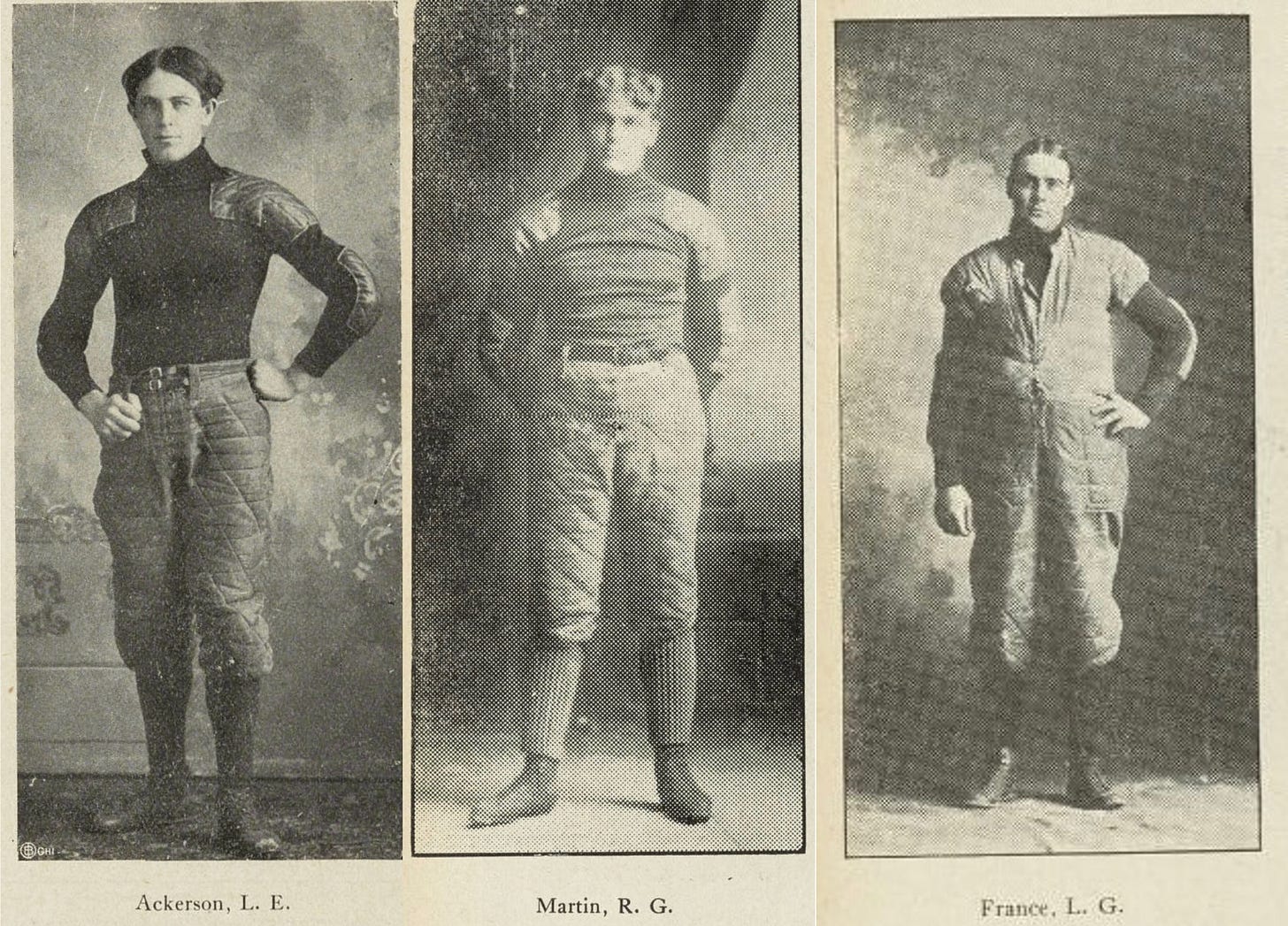
France did not play in the lesser games, returning to Indiana after the Nebraska game. Martin stayed through the season's end but then dropped out and returned to the family farm in Iowa. Several newspapers noted their departures as evidence the players were mere rentals.
You might think there was no cheating at Knox, just differences in eligibility rules. Who knows for sure, but the events of the next few years suggest that some folks at Knox may not have been on the up and up.
Like today, coaches who quickly turned around a football team's fortunes in 1901 and 1902 received offers to coach elsewhere, and John McLean soon found himself signing a contract to coach Missouri, where his team struggled to a 1-7-1 record in 1903. For the 1904 season, McLean convinced Henning Akerson, his star at Knox, to join him at Missouri. Akerson was the team's best player at fullback and in the line as the team struggled to a 3-6 record.
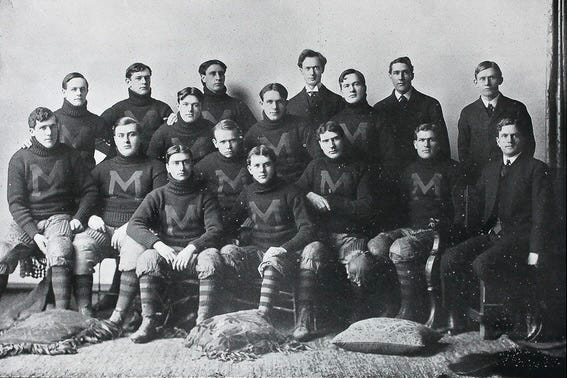
Akerson returned the next fall to assist McLean with the Tiger team, which started the season 5-0 before dropping its last four games. Perhaps some Missouri alums did not appreciate the late-season swoon after two unsuccessful seasons. Still, one way or the other, a story leaked that McLean had paid Akerson $250 ($8,000+ today) to play for the Tigers in 1904. McLean believed Missouri alums would fund the payments to Akerson, but they refused to pay those monies. At least one alum saved McLean's correspondence seeking payment and submitted it to Missouri's Board of Curators after the 1905 season, and they quickly fired McLean.
The fact that McLean paid a player in 1904 tells me he might have played a little loosely while quickly building Knox into a regional power, but that's just me. It is possible everyone played by the rules back then, but I doubt it.
Of course, time heals all wounds and concerns about John L. McLean's misdeeds were forgotten by 2012, at which point Knox College enshrined McLean in their athletic Hall of Fame.
Football Archaeology is reader-supported. Click here to buy one of my books or otherwise support the site.



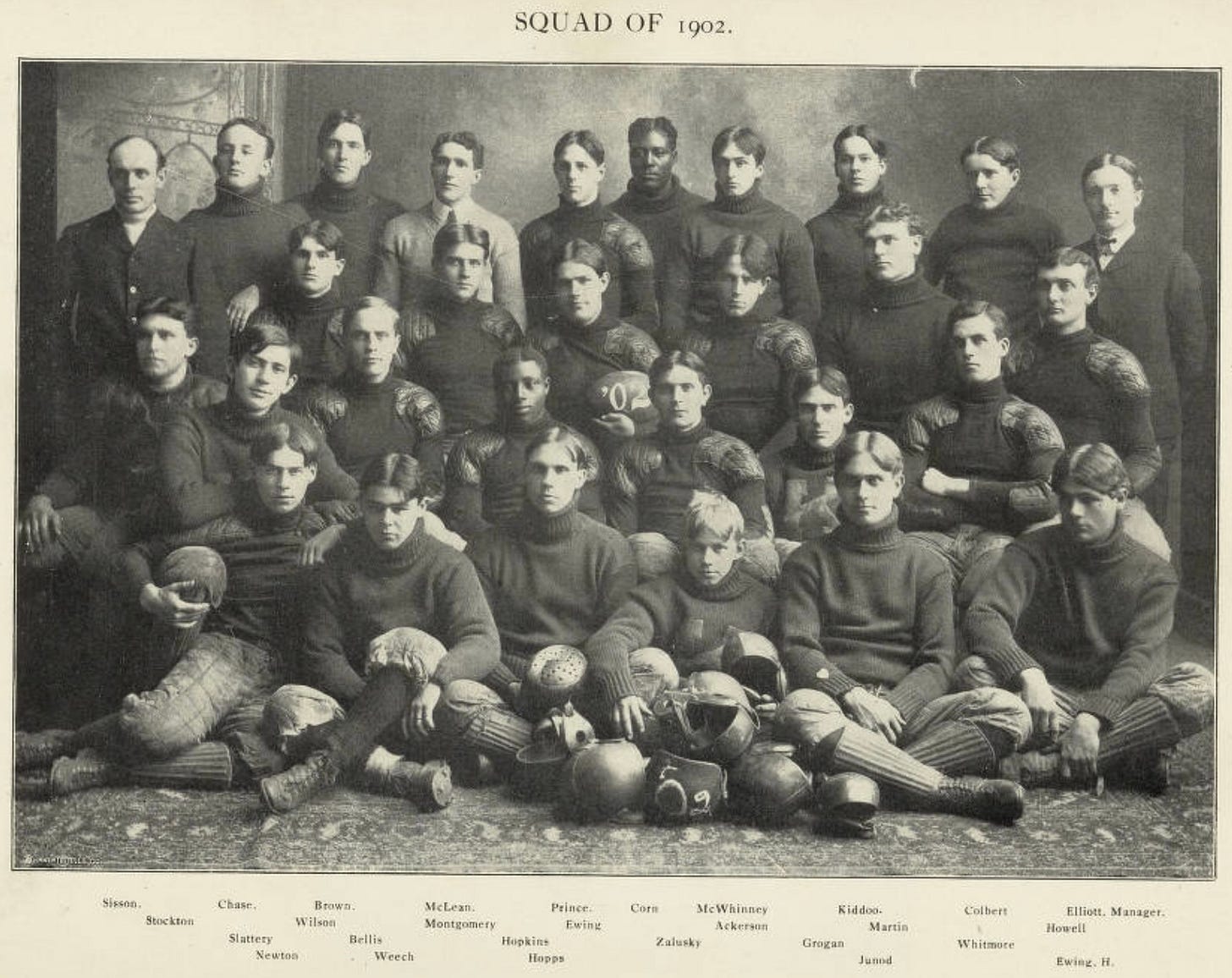

Great story and research. The nefarious activity of Coach McLean is a story that needed to be shared to set the record straight,